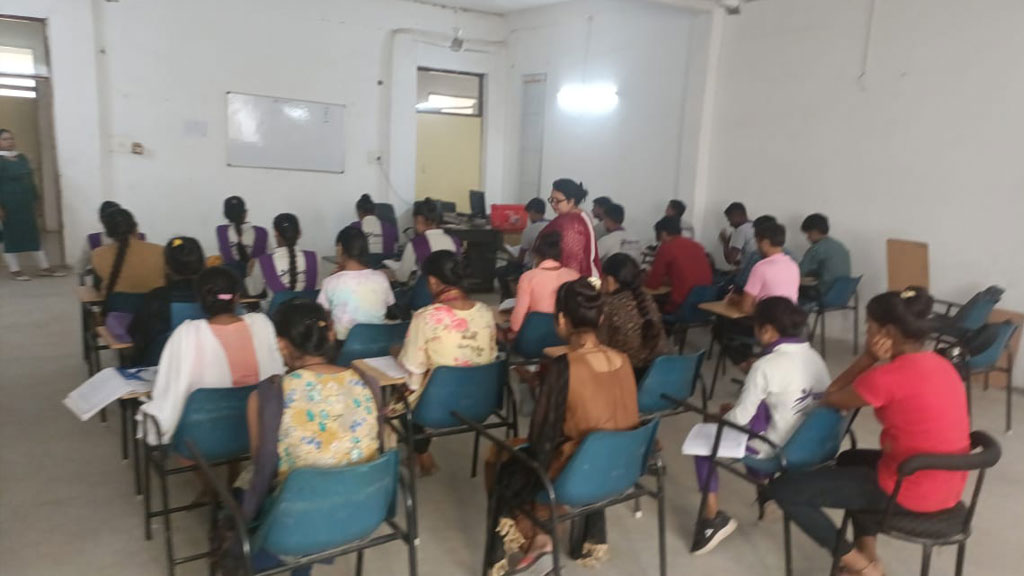Introduction:
In a world where the dynamics of education are evolving rapidly, Corporate Social Responsibility (CSR) has emerged as a driving force beyond traditional philanthropy. This blog post explores the transformative role of CSR in enhancing educational skill development, highlighting initiatives that extend learning beyond the classroom and into the realms of practical, real-world proficiency.
A Paradigm Shift: CSR’s Role in Skill-Centric Education
CSR initiatives are ushering in a new era of education—one that places a premium on skill-centric learning. Moving beyond the conventional model, companies are recognizing the need to equip learners with practical, applicable skills that empower them to navigate the complexities of the modern world.
Workplace Relevance: Aligning Education with Industry Demands
CSR initiatives often focus on bridging the gap between education and industry requirements. By understanding the needs of the workforce, companies contribute to shaping educational programs that align with the skills demanded by the job market, fostering a more seamless transition from classroom to career.
Vocational Training Programs: Building Tangible Expertise
One of the primary ways CSR enhances skill development is through the sponsorship of vocational training programs. These initiatives provide learners with hands-on experiences, immersing them in practical skill-building activities that prepare them for specific trades or industries.
Internship and Apprenticeship Opportunities: Learning by Doing
Beyond theoretical knowledge, CSR initiatives facilitate learning by doing. Internship and apprenticeship opportunities sponsored by companies provide students with real-world exposure, enabling them to apply their classroom learning in practical settings and gain valuable industry insights.
Digital Literacy Initiatives: Navigating the Technology Landscape
In an era dominated by technology, CSR plays a pivotal role in promoting digital literacy. By supporting initiatives that provide access to technology, digital resources, and training programs, companies empower learners with the skills necessary to thrive in a technology-driven world.
Soft Skills Workshops: The Art of Effective Communication
Recognizing the importance of soft skills in personal and professional success, CSR initiatives often sponsor workshops focused on communication, collaboration, problem-solving, and leadership. These soft skills are invaluable assets in any career path, enhancing the overall employability of learners.
Entrepreneurial Incubators: Nurturing Business Prowess
Some CSR programs extend their reach into entrepreneurial education. By supporting business incubators and startup initiatives, companies contribute to fostering an entrepreneurial mindset among learners, equipping them with the skills needed to innovate, take risks, and succeed in business ventures.
Community-Centric Learning: Addressing Local Challenges
CSR initiatives often tailor skill development programs to address specific challenges faced by local communities. This community-centric approach ensures that educational efforts are not only relevant but also contribute directly to uplifting the community by addressing its unique needs.
Empowering Teachers: Professional Development Opportunities
CSR extends its influence to educators, recognizing their pivotal role in skill development. By sponsoring teacher training programs and providing professional development opportunities, companies contribute to the enhancement of teaching methodologies, ensuring that educators are well-equipped to foster skill-centric learning environments.
Measuring Impact: Ensuring Effective Skill Development
A hallmark of effective CSR initiatives is the commitment to measuring impact. Through rigorous assessment and evaluation, companies ensure that their educational efforts result in tangible skill development, providing data-driven insights that guide future initiatives and optimize the overall effectiveness of educational programs.
Conclusion:
Beyond the classroom, CSR initiatives are pioneering a new era of education—one that places a premium on practical skill development. By aligning education with industry demands, supporting vocational training, facilitating internships, promoting digital literacy, and addressing local challenges, companies are becoming architects of transformative change. The collaboration between CSR and education is not just about imparting knowledge; it’s about empowering learners with the skills they need to succeed in an ever-changing world. As we journey into this new educational frontier, CSR stands as a beacon, illuminating the path towards a future where education extends beyond textbooks and empowers individuals with the skills to shape their destinies.
- By admin

